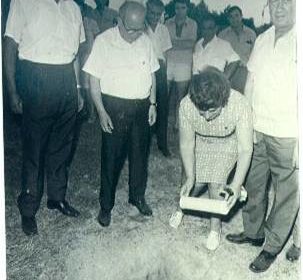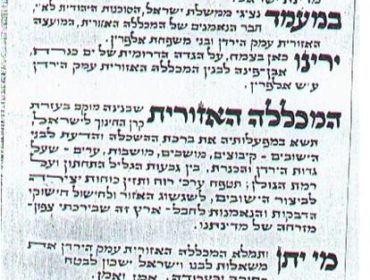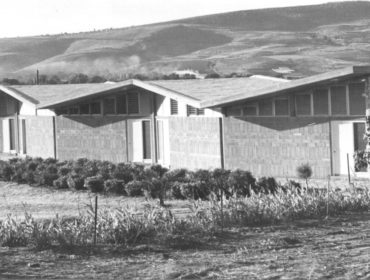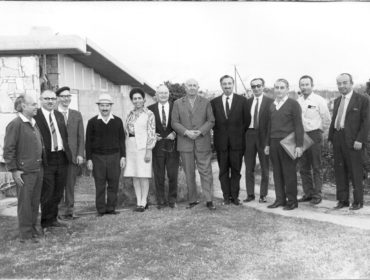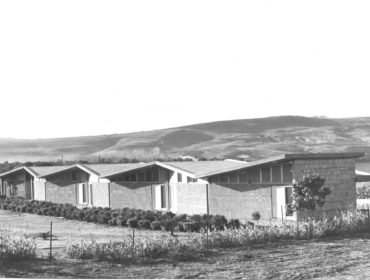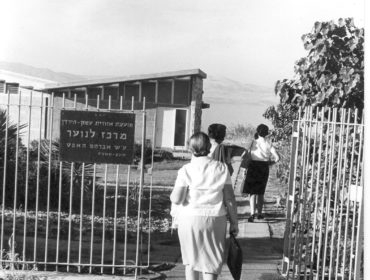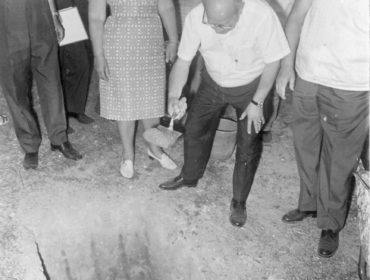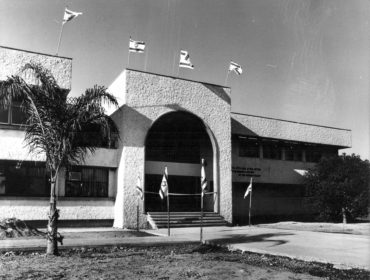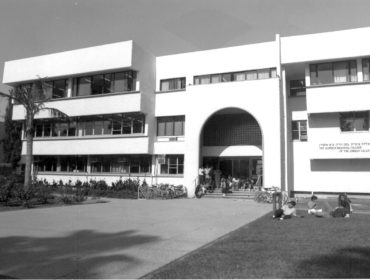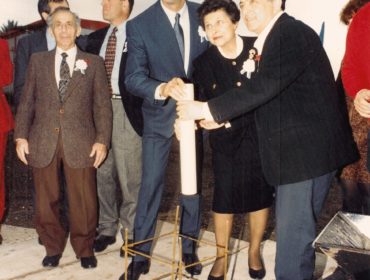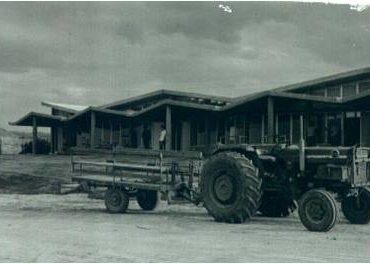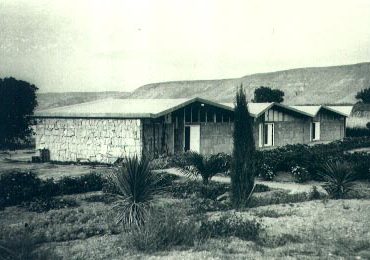The History of the College
The Kinneret College on the Sea of Galilee was founded on the shores of the Sea of Galilee, facing the sea and mountains, embedded in stone, vegetation and the rich history of the Jordan Valley.
Set against the backdrop of a pioneering spirit, forged in the pathways of the valley, this institution of higher education is dedicated to nurturing excellence, providing a solution to the needs of society, and providing quality service to anyone who enters through its gates.
At the birthplace of the kibbutz, and at the point where religion and worldviews meet, whose influence encompasses all of humanity, the college combines the development of unique, innovative and practical courses of study, inspired by its natural and social environment.
Milestones in the college’s history:
In 1965 The regional Jordan Valley College was founded as an educational institution offering post-high school studies to residents of the Jordan Valley and the surrounding Sea of Galilee area.
In 1968, the first academic program was established as a branch of Bar Ilan University.
In 1972, the Jordan Valley College academic program was recognized by the Council for Higher Education.
In 1983, the pre-academic preparatory programs were opened. Today, approximately 360 students attend each year – bagrut (high school matriculation) program, dedicated preparatory programs for engineering, social sciences and humanities studies, and a 30+ program.
In 1987, the diploma studies department was established. Today, around 1,000 students study in the department each year, over 50 courses and advanced training programs.
In 1993, Bar-Ilan University full academic tracks for Bachelor Degrees opened.
In 1998, the school for gifted and talented students was opened. Today, approximately 280 4th-9th grade students attend.
In 2001, approval was granted by the Council for Higher Education and its Budgeting Committee for the establishment of the Jordan Valley College NPO, under the auspices of Bar Ilan University.
In 2004, the College received a charter from the Council for Higher Education to open an institution of higher education and to register students to independent tracks.
In 2004, the Department of Electrical Engineering and Electronics Studies opened.
In 2005, the Department of Tourism and Hotel Management studies opened.
In 2006, the Jordan Valley College changed its name to Kinneret College on the Sea of Galilee.
In 2006, the Department of Information Systems Engineering was opened.
In 2008, the Department of Quality and Reliability Engineering in Electronics Industries opened.
In 2009, the Department of Media Studies opened.
In 2010, the Department of Software Engineering opened.
In 2010, the Department of Water Industries Engineering opened.
In 2011, the college was recognized by the Council for Higher Education and by the Government of Israel, as an institution of higher education, and received a certificate of recognition from the President of Israel, Shimon Peres.
In 2011, the Department of Behavioral Sciences opened.
In 2011, the Department of Land of Israel Studies opened.
In 2012, the Youth Excellence Center opened. Every year, over 100 youth attend the center’s excellence programs.
In 2014, the Department of Education and Community opened.
In 2016, the Interdisciplinary Studies BA in Social Sciences and Humanities opened.
In 2017, the department for Human Resource Management opened.
In 2018, the M.A. in Land of Israel Studies was approved.
In 2018, the M.A. in Tourism and Hotel Management was approved.
Building Projects
In 1974, the Max Alperin Building officially opened. It was the first building of the college that was not a prefabricated structure. Initially, there were two floors, and a third was added 16 years later. The building has a total floor space of 3,000 square meters and contains classrooms, offices, a radio studio, and a large auditorium (250 seats).
In 1998, the Harry Triguboff Science and Technology Center officially opened. The building has a total floor space of over 4,000 square meters and contains classrooms, computer laboratories, electronics laboratories, and science laboratories. The college’s administrative offices sit in this building.
In 2010, the Robert and Yadelle Sklare Family Library officially opened. The building has a total floor space of 3,900 square meters, and houses over 125,000 titles. The building also operates as a regional library benefiting local residents.
In 2012, the Achi Racov School of Engineering was officially opened. The building has four floors and contains classrooms, computer laboratories, an interactive classroom, staff rooms, and the office of the Dean of the School of Engineering.
During 2011-2012, three water industries engineering laboratories were built and opened – a chemistry and microbiology laboratory, a laboratory for fluids and hydraulics, and a laboratory for the treatment of water and wastewater.
In August 2015, the college’s student dormitories were officially opened – three buildings with 249 beds.
In August 2015, the Land of Israel Studies Center was officially opened as part of the South Campus. The center includes classrooms, offices and lecturer halls for the Land of Israel Studies Department.
The college celebrated its jubilee in 2015. Over the past 50 years we have invested great effort in the physical and academic development of the College. Today we boast 14 independent undergraduate degree programs (B.A.), master’s degrees (M.A.), and engineering degrees (B.Sc.).

